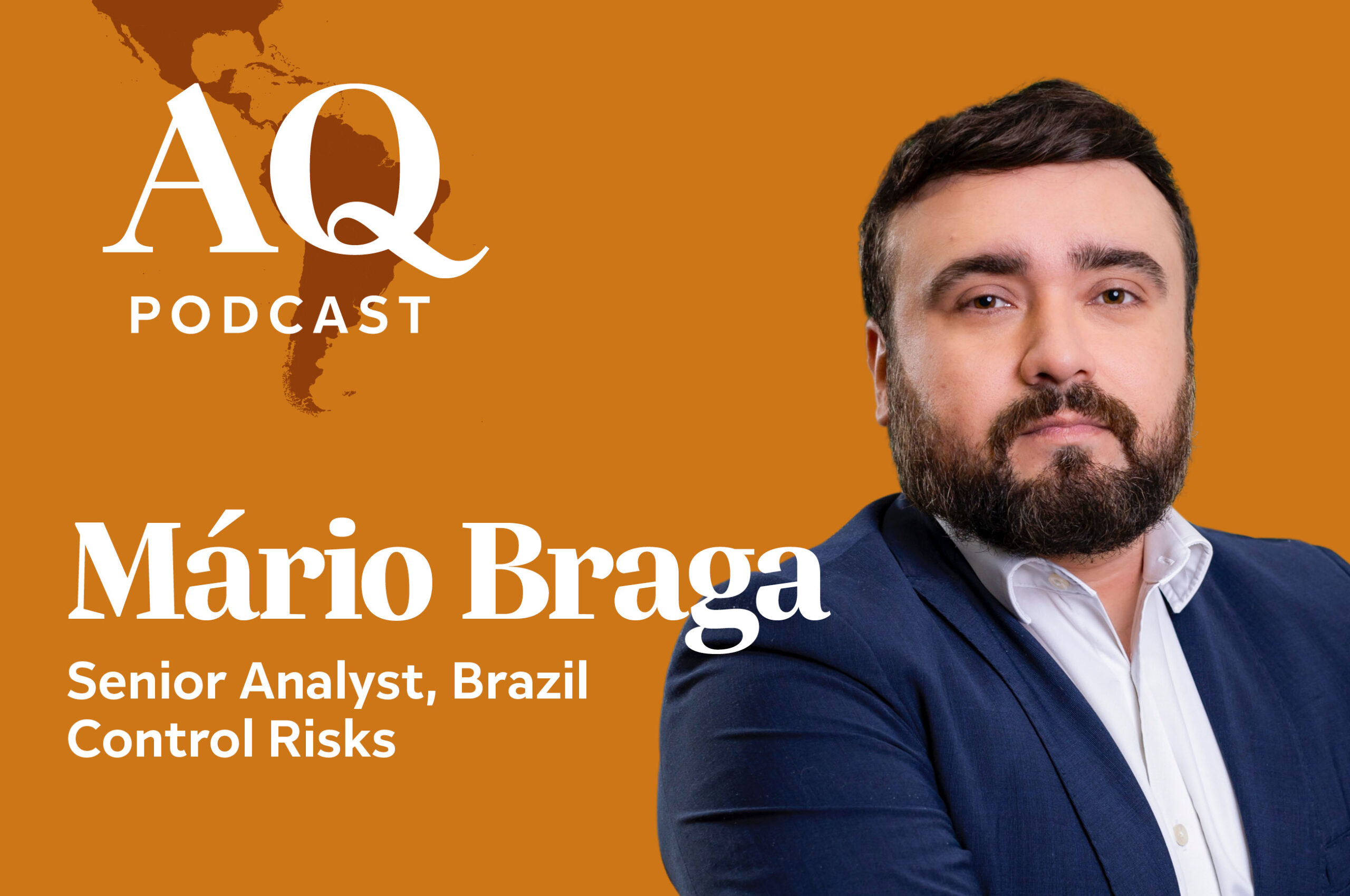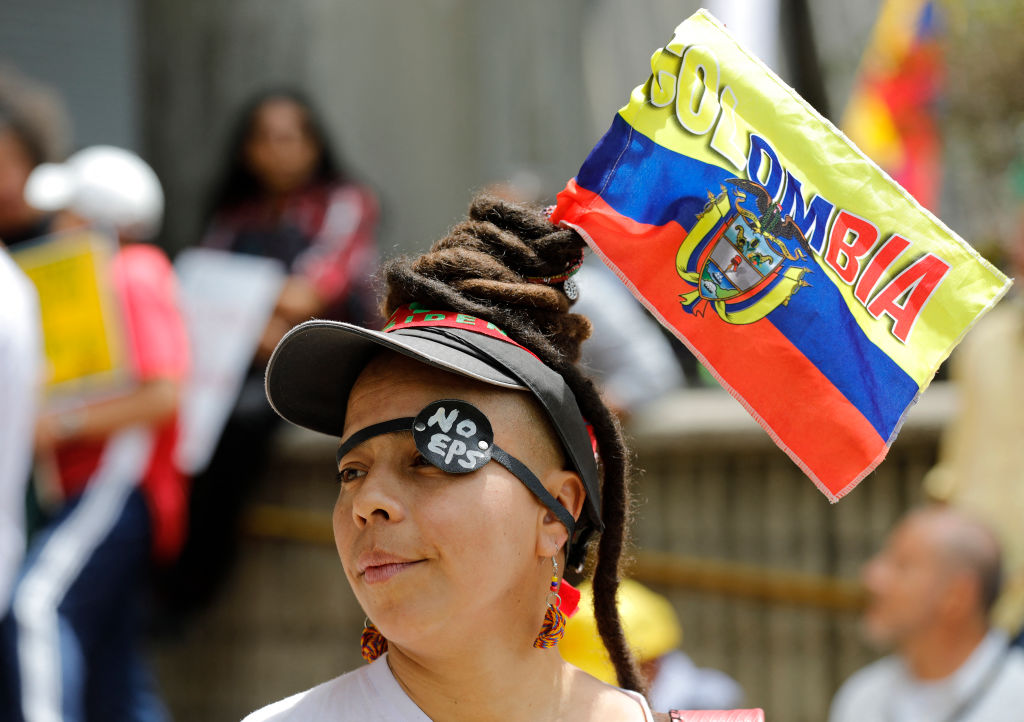Interview: Juanfe President Catalina Escobar on Young Women’s Empowerment in Colombia
Interview: Juanfe President Catalina Escobar on Young Women’s Empowerment in Colombia
The Colombian female development leader spoke with AS/COA Online about empowering young women living in poverty.
“We give [girls] many efficient tools for developing empowerment and entrepreneurial skills and a lot of behavioral, personal, and sexual education skills.”
The president of the Cartagena-based women’s development agency and 2012 CNN Heroes nominee spoke with AS/COA Online’s David Gacs about empowering young women in Colombia to make their own choices about education, family, and health. The former private-sector executive created Juanfe to help young women and girls living in poverty short-circuit the cycle of disempowerment that can follow unplanned teen pregnancy.
AS/COA Online: Your organization focuses on providing health and education choices for teen mothers in the most vulnerable sectors of Colombian society. How does teen pregnancy and unemployment contribute to ongoing cross-generational poverty in Colombia?
Catalina Escobar: We have this model [in Colombia] where—it’s like an equation. When a girl gets pregnant, especially if she is in extreme poverty, she will drop out of school. And when that happens, she will never personally or economically develop. And she is repeating the same paradigms of poverty as her mom and her grandmother, and that’s the problem we have all over developing countries. The biggest problem is that next year, she’s going to be pregnant again and then the year after, and those children are going to grow up poor. And that’s the only thing they see in their lives.
So what we basically do is break that—we recruit them when they’re pregnant for the first time, and in two to four years, we give them many efficient tools for developing empowerment and entrepreneurial skills and a lot of behavioral, personal, and sexual education skills. In two to four years, they’re going to start studying again. We also have a lot of agreements with universities, and right now, we’re nurturing this female labor force from the base of the [social] pyramid. So once they’re pregnant, they stay with us two to four years, and then they’re ready to move on. That’s our equation.
AS/COA Online: There are many worthy causes, especially in developing countries, and many people requiring help. Could you talk about what drew you to young women and teen pregnancy, and Cartagena in particular?
Escobar: When we first started, we said, this is an economic sector, the social sector, like the banking system or any other type of industry. You have so many initiatives here, but you have to be transformative—period. Otherwise I will be wasting my time and people’s money and everybody’s time.
So, first, we looked at what the Millennium Development Goals were. Cartagena had probably the worst problems in Colombia, meaning different things: First, 30 percent of women who give birth are girls from 12 to 18 years of age. Second, 68 percent of the population lives under the poverty line. Third, Cartagena, in less than a decade, doubled its population because of [domestic population] displacements. It became the second-largest city [in Colombia] in terms of number of displacements. Third, 90 percent of the population lives in a 5.8 square kilometer radius.
Cartagena historically has experienced a lot of political corruption. So no wonder, in less than a decade, things started collapsing. You didn’t have hospitals, you didn’t have schools. And another factor: Cartagena used to have the highest infant mortality rate in the country. One thing led to another. So there were a lot of teen pregnancies, but then one of the causes of those babies’ deaths was teenage pregnancy. So we address both issues; one preventive, the other one that children are dying.
AS/COA Online: How does a high infant mortality rate affect development in poor communities? Meaning how does a high infant mortality rate make communities worse off?
Escobar: You know, these people never have good access to health. We’re giving a good message as well, saying, “You have decent access to health, and you have not only decent access, but you can come for five years to keep a track on those lives.” They deserve it as well, you know? They never have had access to anything. They lack so many basic needs. We’re telling the people they have the right to access basic needs.
AS/COA Online: What are some of the long-term impacts you’ve seen on the communities you work in?
Escobar: Well, first and most important, 97 percent of our girls have a responsible sexual life with methods of contraception, and they make that decision. For them to become empowered and make that decision, it’s so very important.
Second, we’re seeing that these girls get pregnant after seven years, which is very good, meaning that once they’re adults, once they make responsible decisions of themselves, they’re allowed to fall in love, form a family and take the right track.
I cannot say that in these years of operation, not one of my girls got pregnant a second time. Of course they can get pregnant, because they’re women and they’re allowed to grow as human beings. But the good thing is that those children are going to grow up in a different way. And that’s the impact. They’re already working, they already studied with us, they have scholarships, or they run their own business, and they have a decent and pretty good life. Now they’re able to move forward and form a family. That’s the impact, basically.
AS/COA Online: How has Colombia’s recent economic growth affected development and poverty in Cartagena?
Escobar: Our country has grown, probably in the past 10 years, 5 to 6 percent annually steadily. We cannot talk about economic prosperity if we don’t invest in our base pyramid. Over the last two, three years, Colombia has grown its middle class. It’s so very important, because that means [poor people] are moving up. But still, you cannot talk about our prosperity if you don’t invest in societies.
AS/COA Online: How does empowering women affect the overall welfare of communities?
Escobar: You know, worldwide, there’s a lot of noise regarding women and girls, because women are [integral to] social welfare. A woman will work with her children, and she will make the base line of her community grow.
People ask me, why don’t you also invest in young men? We can’t do it, because we’re very focused. We invest in models that have an impact and success exit [strategy]. That means we input 20 percent in order to get 80 percent out. But we have to be very successful and make this success measurable, and the best way to do it is investing in girls and women.
Click here to read more about Catalina Escobar's nomination as a CNN Hero.







